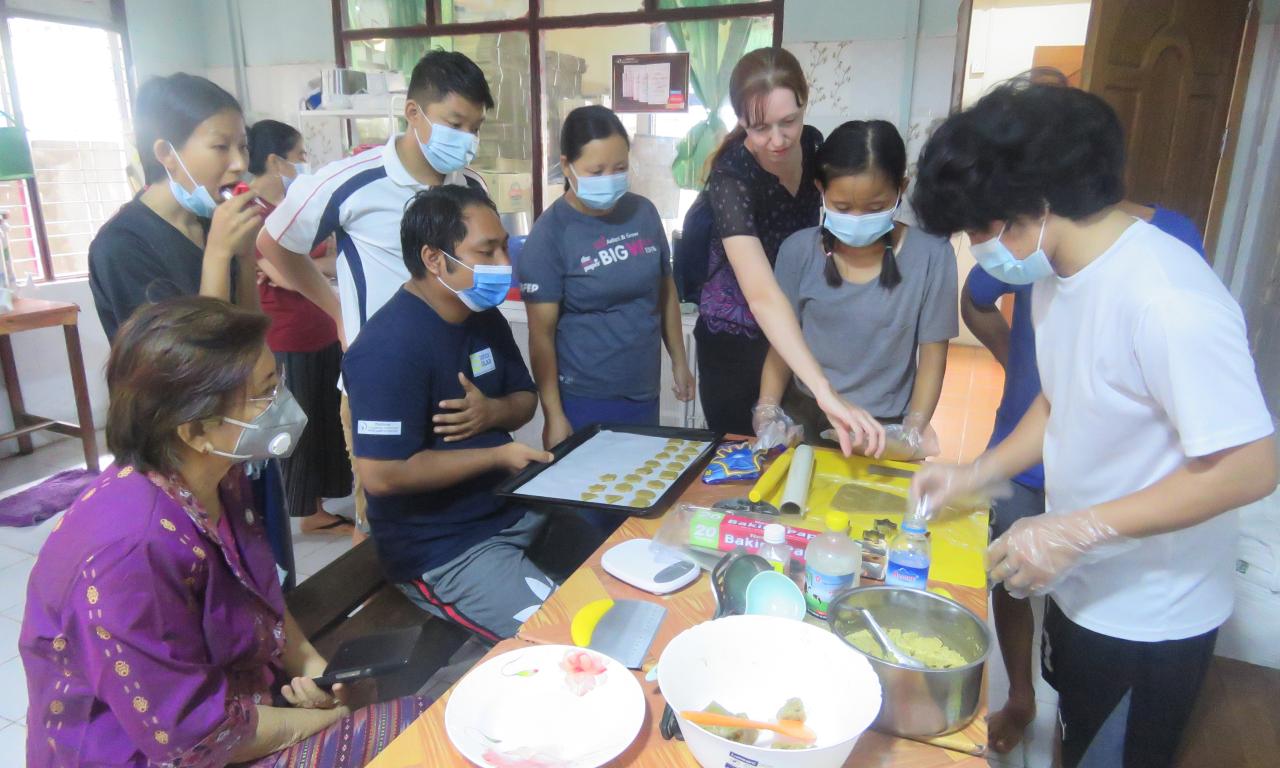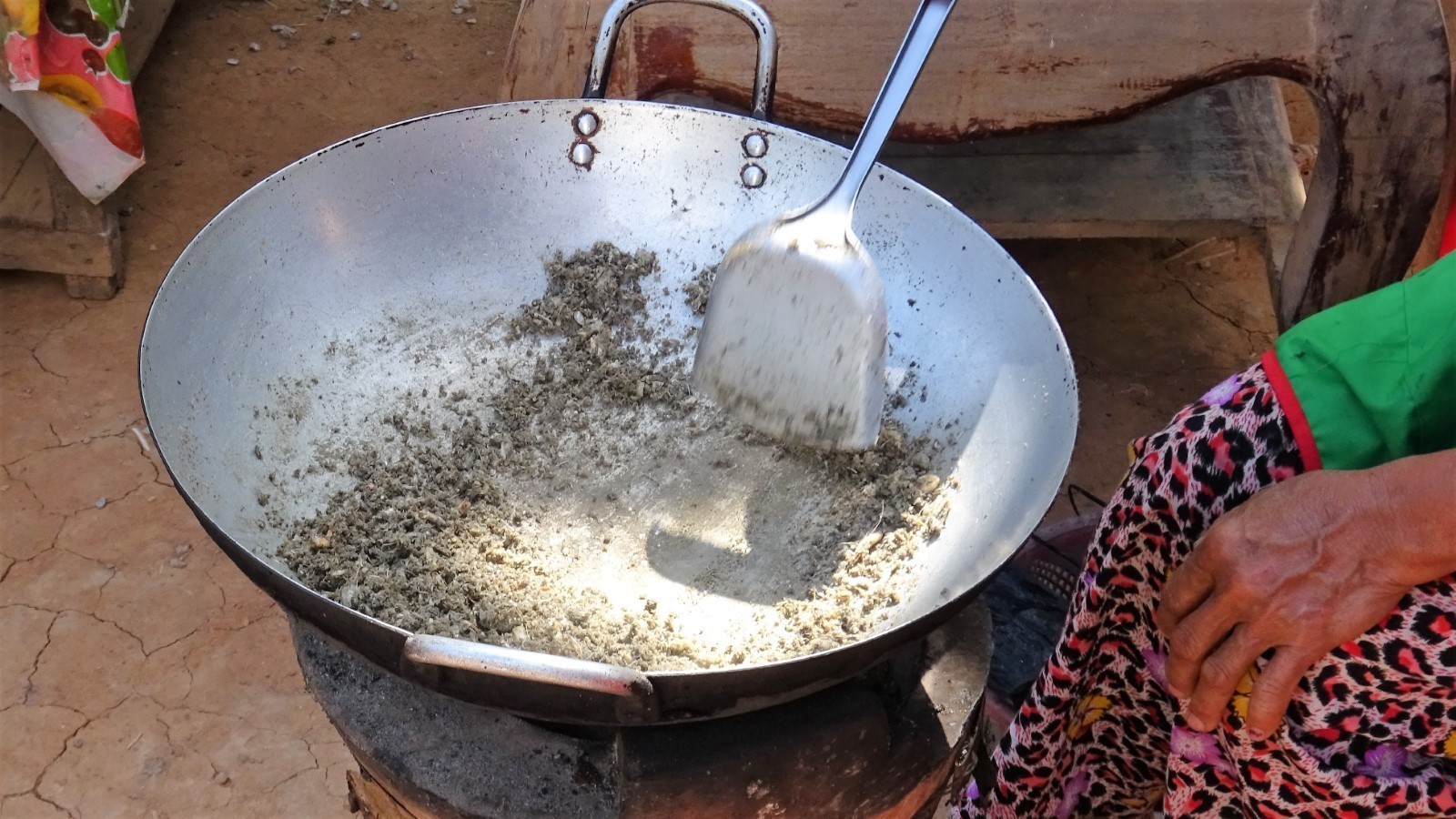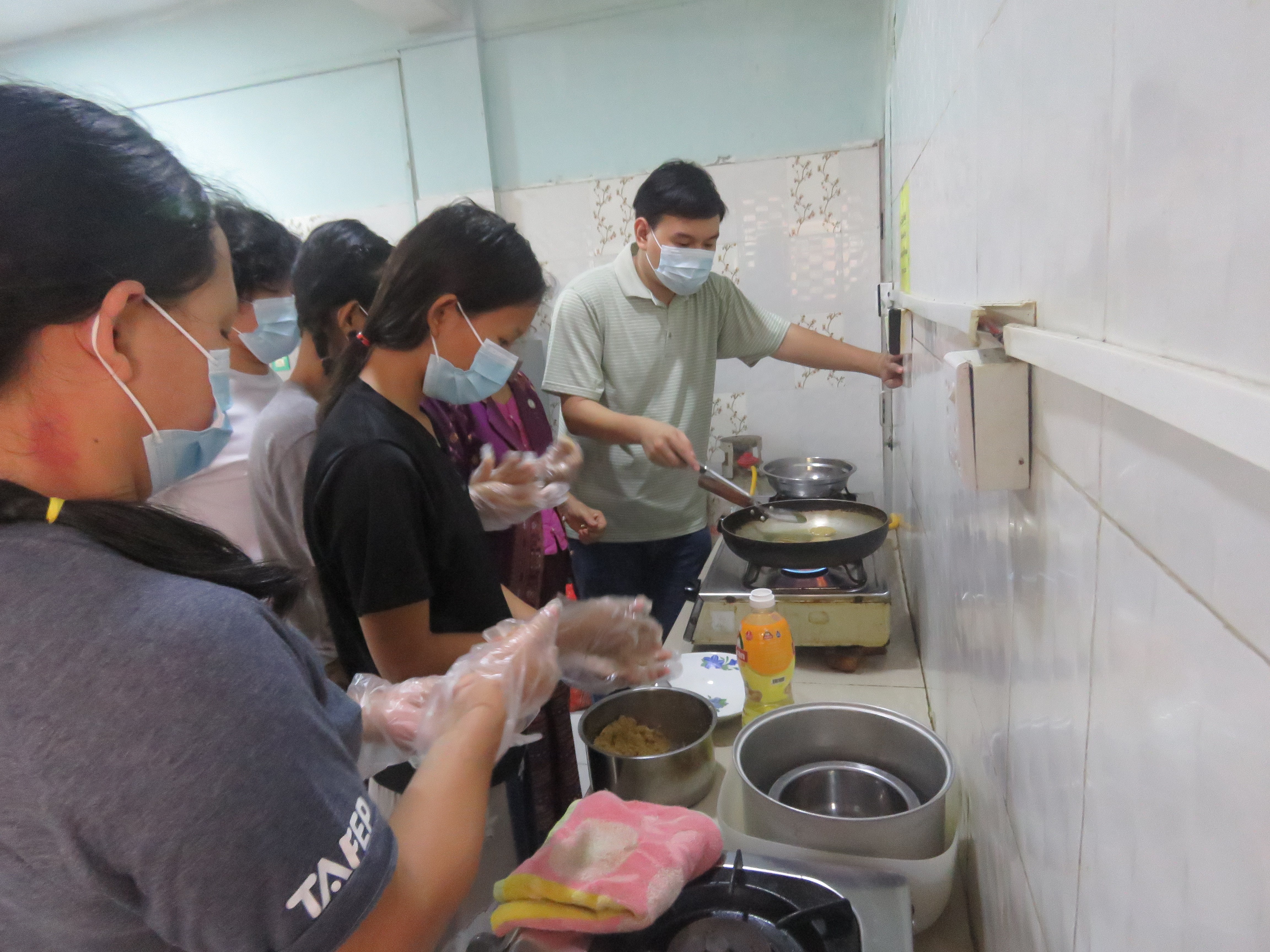
Aquatic food products improve access to nutritious foods among vulnerable communities in Myanmar. WorldFish has partnered with a local business to train youth in the development and marketing of dried fish products, empowering them to lead the fight against malnutrition.
Fish-based biscuits, noodle soups and rice porridges are just a few innovative products improving access to nutritious foods and creating economic opportunities for youth in Myanmar.
A growing appreciation of the nutritional and health benefits of fish and other aquatic foods is encouraging new markets, which promote youth employment in diverse activities along aquatic food value chains—like aquatic food harvesting, processing and trading.
Recognizing the opportunities, FedWell Foods, a food processing company dedicated to nourishing the world’s poorest, is leading aquatic food product development with dried fish. Working in collaboration with WorldFish, the company is training Myanmar's youth to build skills in the development and marketing of dried fish products.
Preserving fish, either through smoking or drying, creates a profitable, transportable and durable source of critical nutrients. Dried fish have a longer shelf-life, which is ideal for low-resource areas without cold storage facilities. FedWell Foods is developing micronutrient-rich dried fish powders, using small indigenous species like mola, that can also be sprinkled over meals or incorporated into the company’s food products to increase nutritional quality.
As part of the training courses, youth participate in cooking demonstrations to learn diverse ways to incorporate the fish powder into meals and develop new recipes. The youth are provided food packets with dried small fish powder to sell in their communities and earn income, encouraging entrepreneurship and building confidence.
“I’ve always loved making snacks, but I had never used dried small fish powder in my recipes before. Now, I have knowledge about how to use dried small fish powder as an ingredient, and I am interested in making cookies and other dishes with fish powder,” said 25-year-old youth Lu Nan, who participating in the training.
WorldFish’s USAID-funded Fish for Livelihood project, which aims to increase the sustainable production, availability and consumption of aquatic foods, has identified dried small fish powder as a means to both create meaningful jobs and improve human nutrition and health.
In Myanmar, 18 percent of the population is aged between 15-24, and youth unemployment is a persistent challenge. By building young people’s skills to develop and promote nutritious fish-based products it is hoped they can create livelihoods while leading the fight against malnutrition, said Quennie Vi Rizaldo, WorldFish’s human nutrition specialist.
“Through involving youth early on in this project, we are laying the foundation that disrupts the intergenerational cycle of malnutrition, whereby well-nourished children become healthy adults later in life,” she said. “Moreover, when provided with the right skills and opportunities, youth can assist in making our food systems more resilient and sustainable, resulting in a well-nourished society.”
Empowered youth are essential to ushering in a food systems transformation that supports sustainable, healthy diets for all, Rizaldo added.
Aquatic foods innovation for health

FedWell Foods preserves surplus fresh fish supplies, sourced from both capture fisheries and aquaculture, using a dehydration process and a grinder to produce a nutritious food concentrate. Drying fish on a stovetop—as opposed to open-air solar drying that attracts flies and fungi—is a more hygienic and appealing way to manufacture the nutrient-rich fish powder.
“Many young people avoid fish due to the bones and the fishy smell, but the neutral dried fish powder does not have these drawbacks. Instead, it’s a good consumable source of protein, calcium, zinc and iron. It is hoped the dried small fish powder can reduce malnutrition among the poor and vulnerable,” said Heather Morris, project manager of FedWell Foods.
Nearly one-third of children in Myanmar are stunted from chronic malnutrition, which is largely attributed to poor diet quality. Poor nutrition continues into youth and adulthood with the vulnerable most affected as nutritious animal-source foods being unavailable or unaffordable.
“Many people living in rural communities have less diverse diets and mostly eat rice and vegetables; animal protein is not usually present because it is unavailable or unaffordable. By including dried small fish powder in diets, which is cheap and nutritious, it adds dietary diversity and enhances the nutritional quality of food,” explained Rizaldo.
Prioritizing fish-based products that are easy to transport, store and incorporate into meals provides a locally available, affordable source of micronutrients and essential fatty acids that support growth and development, especially during the first 1000 days of life, she added.
Hands on experience developing fish-based products

In a recent training session in Yangon, youth gained hands on experience drying small fish, developing powders and incorporating them into five products: biscuits; chickpea clusters; noodle soups; rice porridge soups; and a complementary food mixture for infants. The fish noodle soup was the unanimous favorite among the youth.
FedWell instructors further demonstrate the versatility of the fish powder, encouraging the young trainees’ creativity in developing products that meet their personal taste preferences.
“Before I didn’t really like fish and avoided it, but now I’m using this fish powder to eat more nutritiously,” said 22-year-old participant Naw Naw.
The participants were enthusiastic about cooking with the dried small fish powder, and they were excited to later demonstrate the process to their friends, neighbors and co-workers. They also showed interest in exploring entrepreneurial opportunities to sell fish-based products and food packets to develop markets for nutritious foods in their local communities.
